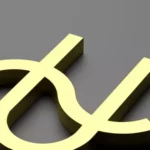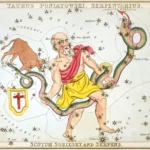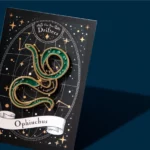Have you ever looked up at the night sky and wondered about the mystical forces that govern our lives? Astrology, the ancient practice of studying the stars and planets, holds the answers. But there’s more to astrology than just your horoscope. In this article, we will dive into the intriguing world of the zodiac wheel and the forgotten constellation of Ophiuchus. From the origin of the zodiac to the impact of Ophiuchus on astrological systems, we will explore the rich history and complex theories behind these celestial phenomena. Get ready to uncover the secrets of the zodiac wheel and expand your understanding of astrology like never before.
Contents
- A Brief History of Astrology
- The Zodiac Wheel
- Ophiuchus: The Forgotten Constellation
- Reevaluating the Zodiac
- Conclusion
-
Frequently Asked Questions
- 1. What is the purpose of astrology?
- 2. How does astrology differ from astronomy?
- 3. What is the zodiac wheel?
- 4. How were the zodiac signs determined?
- 5. What is Ophiuchus and its role in astrology?
- 6. What are the characteristics of Ophiuchus?
- 7. How does Ophiuchus impact the zodiac wheel?
- 8. Is Ophiuchus recognized by all astrologers?
- 9. Can my zodiac sign change with the addition of Ophiuchus?
- 10. How accurate is astrology?
- References
-
Frequently Asked Questions
- What is the history of astrology?
- How does the Zodiac Wheel work?
- Where did the Zodiac Wheel originate?
- What is the significance of the Zodiac Wheel?
- Who is Ophiuchus in ancient astrology?
- What are the mythological origins of Ophiuchus?
- How was Ophiuchus integrated into ancient astrological systems?
- What are the characteristics of people born under Ophiuchus?
- How did Ophiuchus impact the Zodiac Wheel?
- Why is there a debate among astrologers regarding Ophiuchus?
- References
- Read More
A Brief History of Astrology
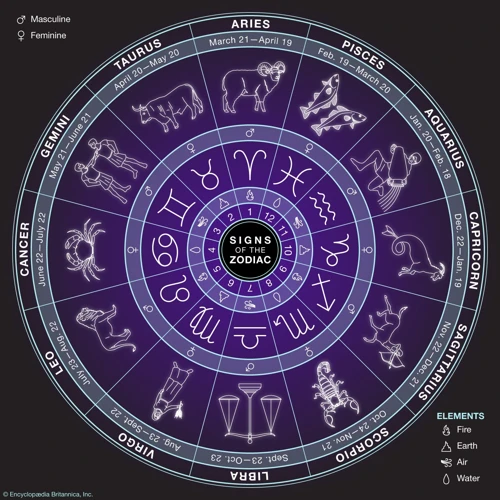
Astrology, a system of divination based on the positions and movements of celestial bodies, has a rich and complex history that spans thousands of years. It originated in ancient civilizations such as Mesopotamia, Egypt, and China, where people observed the stars and connected them to human events on Earth. The earliest known astrological records date back to the 2nd millennium BCE, with the Babylonians developing the first organized astrological system. They created the zodiac, a band of constellations that marked the path of the Sun, and divided it into twelve equal segments, each associated with specific personality traits and life events. This concept of the zodiac was later adopted and refined by the ancient Greeks, who assigned ruling planets to each sign.
During the Hellenistic period, astrology became more complex and influential. Hellenistic astrologers introduced the idea of the Ascendant, the point on the eastern horizon at the time of birth, which was believed to shape a person’s physical appearance and overall destiny. They also developed intricate systems for casting birth charts and predicting future events. This era saw the rise of famous astrologers, like Claudius Ptolemy, whose works on astrology greatly influenced subsequent generations.
In the Middle Ages, astrology spread throughout Europe, becoming intertwined with various religious and philosophical traditions. It was during this time that the twelve signs of the zodiac became associated with the four elements (Fire, Earth, Air, and Water) and the three modalities (Cardinal, Fixed, and Mutable). The Renaissance brought a renewed interest in astrology, with scholars like Nicholas Copernicus and Johannes Kepler exploring the connections between astrology and astronomy.
In modern times, astrology has faced scrutiny and skepticism from the scientific community. While some argue that astrology is purely based on pseudoscience and lacks empirical evidence, others view it as a valuable tool for self-reflection and understanding. Astrology remains popular around the world, with millions of people consulting horoscopes and seeking guidance from astrologers.
Despite its long history, astrology continues to evolve and adapt to new beliefs and discoveries. The recent discussion surrounding Ophiuchus, the forgotten constellation, has prompted a reevaluation of the zodiac wheel and the impact of this celestial figure on astrological systems. To delve deeper into this intriguing topic, let’s explore the origin and significance of the zodiac wheel, as well as the mythological roots and characteristics of Ophiuchus.
The Zodiac Wheel
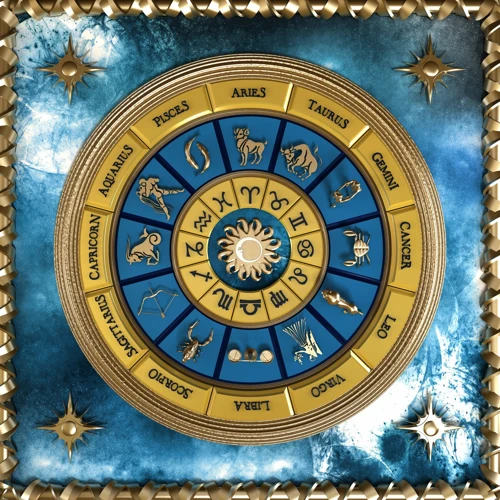
The zodiac wheel is a fundamental concept in astrology that has captivated human fascination for centuries. This celestial circle is divided into twelve equal segments, or signs, each representing specific personality traits and life events. The origin of the zodiac can be traced back to ancient civilizations, particularly the Babylonians who first developed this system. Over time, the Greeks refined and popularized the zodiac, associating each sign with ruling planets and assigning them to the four elements and three modalities. The zodiac wheel serves as a symbolic representation of the path of the Sun throughout the year and holds great significance in astrological interpretations. While the zodiac has long been established with its twelve signs, the recent discovery and discussion of Ophiuchus, the forgotten constellation, has brought about a reevaluation of the zodiac wheel and its implications in astrological systems. To understand the zodiac wheel fully, it is necessary to delve into the mythological origins and characteristics of Ophiuchus, as well as the ongoing debate among astrologers regarding its inclusion in the zodiac. (Link: /ophiuchus-astrology/)
1. The Origin of the Zodiac
The origin of the zodiac can be traced back to the ancient civilizations of Mesopotamia and Egypt. The Mesopotamians, particularly the Babylonians, developed the first organized astrological system around the 2nd millennium BCE. They observed the movements of the Sun and linked them to the changing seasons and human events on Earth. The zodiac, meaning “circle of animals” in Greek, was created by dividing the ecliptic, the path the Sun appears to follow across the sky, into twelve equal segments. Each segment was associated with a particular constellation that marked the Sun’s position at a specific time of the year. These constellations, or signs, were named after animals or mythical figures and were believed to influence the personalities and destinies of individuals born under them.
The Babylonians assigned ruling planets to each sign based on their perceived influence over human affairs. These associations formed the basis of the zodiac as we know it today. The twelve signs of the zodiac are Aries, Taurus, Gemini, Cancer, Leo, Virgo, Libra, Scorpio, Sagittarius, Capricorn, Aquarius, and Pisces.
The ancient Egyptians also had their own version of the zodiac, which influenced the development of astrology in later civilizations. They aligned the zodiac with the annual flooding of the Nile River, using the stars to predict the arrival of the flood and its impact on agriculture. The Egyptian zodiac consisted of 36 decans, each representing a ten-day period. The decans were associated with specific gods and goddesses, offering insights into different aspects of one’s life and personality.
Over time, the Greek civilization adopted and expanded upon the Babylonian and Egyptian astrological traditions. They incorporated the zodiac into their mythology, associating each sign with a particular mythological figure. These associations added layers of symbolic meaning to the zodiac, further enriching its significance.
The origin of the zodiac showcases the ancient belief in the interconnectedness of the heavens and human affairs. It reflects the human desire to understand and navigate the complexities of life by seeking guidance from the celestial realm. Today, the zodiac continues to be a widely recognized and influential aspect of astrology, shaping our understanding of personality traits, compatibility, and the cycles of life. To explore further, let’s uncover the significance of the zodiac wheel in ancient astrological systems.
2. The Significance of the Zodiac Wheel
The Zodiac Wheel holds great significance in astrology and has been used for centuries as a tool for understanding personality traits, predicting future events, and exploring the cosmic connections between humans and the universe. Here are some key aspects of the significance of the Zodiac Wheel:
1. Personality Traits: Each of the twelve signs of the zodiac is associated with specific personality traits and characteristics. For example, Aries is known for being courageous and energetic, while Taurus is often described as reliable and patient. These traits are believed to be influenced by the position of celestial bodies at the time of a person’s birth. Astrologers use the Zodiac Wheel to analyze these traits and provide insights into individual behavior and compatibility.
2. Life Events and Timing: The Zodiac Wheel is also used to understand and predict important life events. Each sign is connected to specific areas of life, such as love, career, and health. For instance, Scorpio is often associated with transformations and intense emotional experiences, while Capricorn is linked to ambition and career advancement. By analyzing the positions of planets and their interactions with the signs, astrologers can offer guidance on timing and potential opportunities or challenges in various aspects of life.
3. Compatibility and Relationships: The Zodiac Wheel plays a crucial role in assessing compatibility between individuals. Astrologers examine the compatibility of different signs based on their element (Fire, Earth, Air, Water) and modality (Cardinal, Fixed, Mutable). For example, Fire signs (Aries, Leo, Sagittarius) are known for their passion and enthusiasm and tend to get along well with Air signs (Gemini, Libra, Aquarius), who value intellectual stimulation. By using the Zodiac Wheel as a reference, astrologers can provide insights into relationship dynamics and potential areas of harmony or conflict.
4. Personal Growth and Self-Reflection: The Zodiac Wheel offers a framework for personal growth and self-reflection. By exploring their own sign and the characteristics associated with it, individuals can gain a deeper understanding of their strengths, weaknesses, and potential areas for personal development. The Zodiac Wheel can serve as a guide for embracing one’s unique qualities and working towards self-improvement.
As the discussion surrounding Ophiuchus unfolds, it raises questions about the potential impact of this forgotten constellation on the Zodiac Wheel. To explore further, let’s delve into the mythological origins and characteristics of Ophiuchus in ancient astrological systems.
Ophiuchus: The Forgotten Constellation
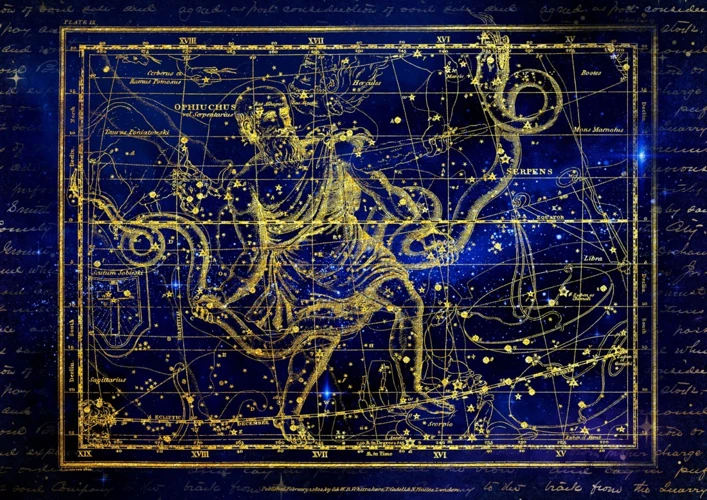
Ophiuchus, often referred to as the forgotten constellation, holds a special place in ancient astrological systems. Positioned between Scorpio and Sagittarius on the zodiac wheel, this constellation has long captivated the curiosity of astronomers and astrologers alike. According to mythology, Ophiuchus represents the healer Asclepius, who possessed the ability to resurrect the dead. With its serpent symbolism, Ophiuchus symbolizes wisdom, transformation, and the power of healing. In ancient astrological systems, Ophiuchus was not included as one of the twelve zodiac signs, but recent debates and discussions have rekindled interest in this celestial figure. Some believe that Ophiuchus should be incorporated into the zodiac, influencing personality traits and predictions. While its inclusion may redefine astrology as we know it, the impact of Ophiuchus remains a subject of ongoing exploration.
1. The Mythological Origins of Ophiuchus
The mythological origins of Ophiuchus can be traced back to ancient Greek and Roman mythology. According to one myth, Ophiuchus represents Asclepius, the Greek god of medicine and healing. Asclepius was the son of Apollo and a mortal woman named Coronis. He possessed extraordinary healing abilities and was known to have resurrected the dead. However, his power and success in defying death attracted the attention of Hades, the god of the underworld. Hades complained to Zeus, who grew concerned about the balance between life and death. To maintain this balance, Zeus struck Asclepius with a lightning bolt, killing him instantly.
The death of Asclepius angered Apollo, who sought revenge by killing the Cyclopes, the blacksmiths of the gods who had forged the lightning bolt. As a result, Zeus condemned Apollo to serve as a mortal for a year. During this time, Apollo fell in love with a mortal woman named Coronis and impregnated her with Asclepius. When Coronis was on the verge of giving birth, Apollo sent a raven to keep watch over her. However, the raven discovered that Coronis had been unfaithful, and it informed Apollo of her betrayal. Enraged, Apollo turned the raven’s feathers black and caused Coronis to perish in the ensuing chaos.
Despite the tragic circumstances of Asclepius’ birth and death, he was posthumously honored by Zeus, who placed him among the stars as the constellation Ophiuchus. Ophiuchus became associated with healing and medicine, symbolizing the wisdom and knowledge of Asclepius. The constellation is depicted as a man holding a snake, representing the serpent Asclepius used as a healing symbol. In Greek mythology, the serpent was believed to possess regenerative powers and was closely associated with healing rituals.
The mythological origins of Ophiuchus highlight its connection to medicine and the healing arts. This association is significant when considering the impact of Ophiuchus on astrological systems, as it adds depth and complexity to the zodiac wheel. To further explore this impact, let’s delve into how Ophiuchus is integrated into ancient astrological systems and the characteristics attributed to this often overlooked constellation.
2. Ophiuchus in Ancient Astrological Systems
Ophiuchus, also known as the Serpent Bearer, may be a forgotten constellation in modern astrology, but it held significance in ancient astrological systems. In Greek mythology, Ophiuchus is associated with Asclepius, the god of healing and medicine. According to legend, Asclepius possessed the power to resurrect the dead, which angered Zeus. In response, Zeus struck Asclepius with a lightning bolt, killing him and placing him in the heavens as the constellation Ophiuchus.
In ancient astrological systems, Ophiuchus was seen as a powerful figure with unique qualities. Some believed that Ophiuchus had the ability to heal physical and spiritual ailments, making those born under this constellation natural healers and spiritual leaders. These individuals were thought to possess great wisdom and a deep understanding of the mysteries of life.
The inclusion of Ophiuchus in ancient astrological systems brought the total number of zodiac signs to thirteen, with Ophiuchus positioned between Scorpio and Sagittarius. However, as astrology evolved over time, the number twelve became more prevalent and Ophiuchus was gradually excluded from the zodiac.
Despite its diminished presence in contemporary astrology, Ophiuchus continues to be recognized and explored by those who seek to expand their understanding of celestial influences. Some astrologers argue that the inclusion of Ophiuchus in the zodiac can provide additional insight and a broader perspective on personality traits and life events. Others, however, adhere to the traditional twelve-sign zodiac and focus primarily on the established constellations.
As we delve deeper into the impact of Ophiuchus on the zodiac wheel and the ongoing debate among astrologers, we will explore different perspectives and theories surrounding this fascinating constellation. So, let’s continue our journey of understanding Ophiuchus and its role in ancient astrological systems.
3. The Characteristics of Ophiuchus
Ophiuchus, the forgotten constellation in the zodiac wheel, possesses a distinctive set of characteristics that sets it apart from the other twelve signs. Those born under Ophiuchus are said to exhibit traits of wisdom, healing, and transformation. Represented by the serpent bearer, Ophiuchus symbolizes the power to overcome challenges and bring about positive change in oneself and the world.
Individuals aligned with Ophiuchus are often seen as natural healers, with an innate ability to bring comfort and restoration to those around them. They have a deep understanding of the human psyche and are skilled at providing guidance and support. Ophiuchus individuals place great importance on personal growth and introspection, constantly seeking knowledge and exploring different avenues of spiritual and intellectual development.
Embracing the serpent symbolism, Ophiuchus individuals demonstrate a profound capacity for transformation. They are not afraid to shed old beliefs and behaviors that no longer serve them, and instead, embrace opportunities for personal evolution and self-improvement. This transformative quality extends beyond their own lives, as Ophiuchus individuals often inspire others to embark on their own journeys of growth and change.
Despite being lesser-known, Ophiuchus carries significant weight in astrological interpretations. Some astrologers believe that the addition of Ophiuchus to the zodiac wheel can bring a fresh perspective and further enrich our understanding of the human experience. Others argue that the inclusion of Ophiuchus challenges traditional astrological frameworks and forces us to question the accuracy and relevance of existing interpretations.
While the characteristics attributed to Ophiuchus may resonate strongly with some individuals, it is important to note that astrology is a complex and multi-faceted practice. Interpretations of Ophiuchus can vary across different astrological traditions and cultures. For example, in Mayan astrology, Ophiuchus is associated with the direction of North and represents wisdom and spiritual growth. Exploring the influence of Ophiuchus in different astrological systems can provide valuable insights into the diverse perspectives on this constellation.
As astrology continues to evolve and adapt to new beliefs and discoveries, the characteristics of Ophiuchus serve as a reminder of the rich complexity of the zodiac wheel. Whether seen as an influential force in Mayan astrology or a symbol of transformation in modern interpretations, Ophiuchus invites us to explore new possibilities and expand our understanding of the cosmos.
Reevaluating the Zodiac
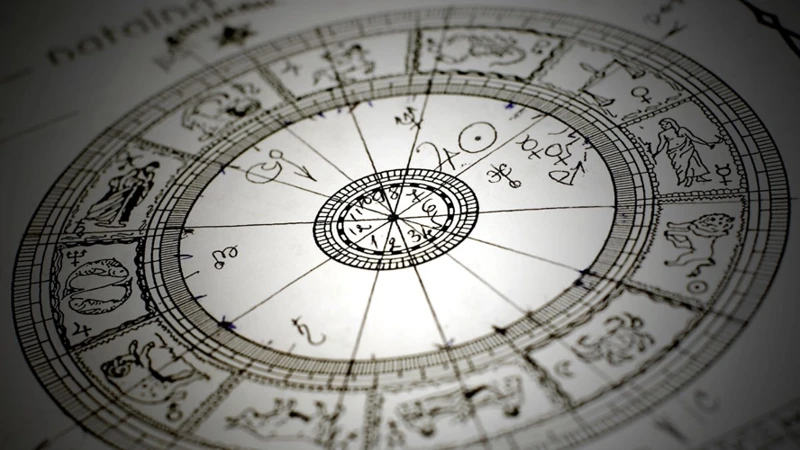
The introduction of Ophiuchus, the forgotten constellation, has sparked a heated debate among astrologers, leading to a reevaluation of the traditional zodiac wheel. Some argue that Ophiuchus should be included as a thirteenth sign, disrupting the familiar twelve-sign system. This has raised questions about the characteristics and influence of Ophiuchus on astrological interpretations. While some astrologers embrace the addition of Ophiuchus and explore its significance in areas such as Mayan astrology, others remain skeptical and adhere to the traditional zodiac. The controversy surrounding Ophiuchus forces us to consider the fluid and evolving nature of astrology and its role in scientific research. As astrologers and enthusiasts continue to debate, the zodiac wheel finds itself at a crossroads, prompting us to reevaluate our understanding of astrology and the potential impact of Ophiuchus on our cosmic interpretations.
1. The Impact of Ophiuchus on the Zodiac Wheel
The inclusion of Ophiuchus in the zodiac wheel has sparked a significant impact on astrological systems. Traditionally, the zodiac consists of twelve signs, each occupying 30 degrees of the celestial sphere. However, the discovery of Ophiuchus has raised questions about its placement within the zodiac and its influence on the interpretations of individual horoscopes.
Some astrologers argue that Ophiuchus should be recognized as the thirteenth sign of the zodiac, positioned between Scorpio and Sagittarius. They suggest that those born between November 29 and December 17 should align themselves with the traits and characteristics associated with Ophiuchus. This addition to the zodiac wheel would shift the dates and interpretations of the existing signs.
The impact of Ophiuchus on the zodiac wheel has the potential to alter people’s astrological identities and self-perceptions. It introduces new energies and qualities that individuals may resonate with, affecting their understanding of themselves and their interactions with others. This shift in perspective could broaden the scope of astrological interpretations and offer a more nuanced understanding of human experiences.
However, it is important to note that not all astrologers acknowledge the inclusion of Ophiuchus in their practice. Skeptics argue that the traditional twelve zodiac signs have been used for centuries and changing them would disrupt the established systems. They highlight the need for further research and analysis before fully adopting Ophiuchus into astrological interpretations.
As discussions around Ophiuchus continue, it is crucial for astrologers and enthusiasts to explore and understand the implications of its inclusion. Whether embracing Ophiuchus as the thirteenth zodiac sign or maintaining the traditional twelve, the impact of this forgotten constellation on the zodiac wheel has ignited a vibrant debate within the astrological community. Its influence reflects the evolving nature of astrology and highlights the ongoing exploration and reinterpretation of celestial phenomena.
2. The Debate Among Astrologers
The inclusion of Ophiuchus in the astrological system has sparked a heated debate among astrologers. Some argue that adding Ophiuchus as the 13th zodiac sign disrupts the traditional order and meaning of the zodiac wheel. They believe that the twelve signs have been established for centuries and changing them would undermine the foundations of astrology. These traditionalists emphasize the symbolic significance and archetypal associations of the original twelve signs, arguing that they provide a comprehensive framework for understanding human personality and life events.
On the other hand, proponents of including Ophiuchus argue that it brings a fresh perspective and expands the possibilities within astrology. They believe that Ophiuchus should be recognized as a viable zodiac sign, offering additional insights into personality traits and life patterns. These astrologers view the zodiac as a dynamic and evolving system, capable of accommodating new discoveries and understandings. They argue that Ophiuchus adds complexity and depth to astrological interpretations, providing a more nuanced view of individuals’ experiences.
The debate also revolves around the practical implications of including Ophiuchus. Some astrologers suggest that those born under Ophiuchus should now identify with this sign, potentially affecting their self-perception and understanding of their astrological profile. Others propose that Ophiuchus could be integrated as a secondary sign, serving as a modifier or an accent to primary zodiac signs. This approach would acknowledge Ophiuchus without completely altering the established zodiac system.
It is important to note that while this debate rages among astrologers, there is no consensus on the matter. Each astrologer may choose to interpret and incorporate Ophiuchus in their practice according to their beliefs and methodologies. As astrology continues to evolve, the discussion surrounding Ophiuchus and its place in the zodiac wheel highlights the dynamic nature of this ancient practice and the diverse perspectives within the astrological community.
Conclusion
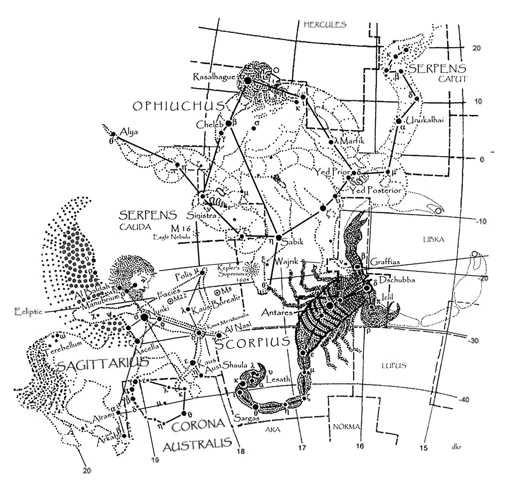
In conclusion, the study of astrology offers a fascinating glimpse into the ancient and complex relationship between the celestial bodies and human existence. Throughout history, astrology has played a significant role in shaping cultures, providing guidance, and offering insights into individual personalities and life events. The zodiac wheel, with its twelve signs and associated traits, has served as a symbolic representation of the human experience and continues to captivate and intrigue people around the world.
With the rediscovery of Ophiuchus, the forgotten constellation, astrologers and enthusiasts have embarked on a journey of reevaluating the zodiac and its impact on astrological systems. The mythological origins and unique characteristics of Ophiuchus provide an opportunity to expand our understanding of the celestial influences that shape our lives. While this reevaluation has been met with debate among astrologers, it presents an exciting avenue for exploration and discussion within the field.
As astrology evolves and adapts to new beliefs and discoveries, it continues to offer individuals a means of self-reflection, personal growth, and connection to the cosmos. Whether one chooses to embrace astrology as a guiding force or views it through a more skeptical lens, its enduring popularity suggests there is something inherently captivating about this ancient practice.
While astrology may not adhere to the rigorous standards of scientific research, it holds a place in the hearts and minds of many who find comfort and inspiration in its teachings. The ongoing exploration of astrology’s influence on various cultures and societies, such as its role in Mayan astrology or its potential applications in scientific research, adds depth and complexity to this intricate discipline.
In the end, astrology remains a subject of intrigue and fascination, continuing to spark curiosity and inspire exploration into the mysteries of the cosmos. Whether one finds solace in their zodiac sign, seeks guidance from horoscopes, or delves deeper into the history and intricacies of astrological systems, the study of astrology offers a captivating journey of self-discovery and connection to the celestial realms.
Learn more about the influence of Ophiuchus in Mayan astrology.
Frequently Asked Questions
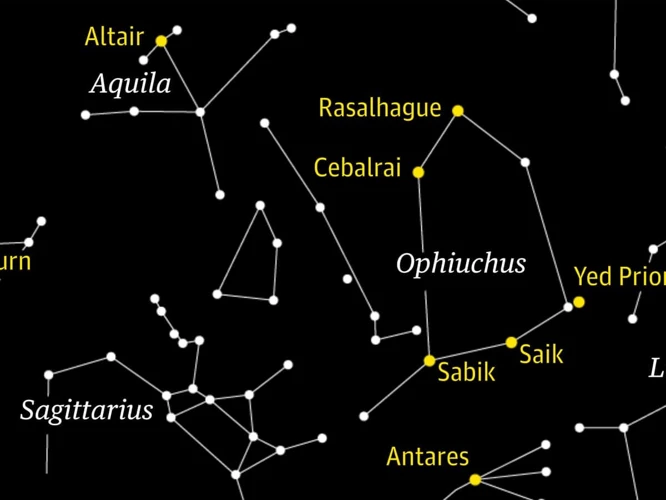
1. What is the purpose of astrology?
Astrology is believed to provide insights into individuals’ personalities, relationships, and life events by studying the positions and movements of celestial bodies. It aims to offer guidance and self-reflection.
2. How does astrology differ from astronomy?
Astronomy is the scientific study of celestial objects and phenomena, while astrology is a belief system that interprets the influence of celestial bodies on human affairs and behavior.
3. What is the zodiac wheel?
The zodiac wheel is a circular diagram divided into twelve segments, each representing a different astrological sign. It is used to determine a person’s sun sign based on their date of birth.
4. How were the zodiac signs determined?
The zodiac signs were determined by ancient astrologers who observed the constellations along the path of the Sun throughout the year and associated specific traits and symbolism with each segment.
5. What is Ophiuchus and its role in astrology?
Ophiuchus is a thirteenth constellation that falls along the ecliptic, the path the Sun appears to travel across the sky. Its inclusion challenges the traditional twelve-sign zodiac system.
6. What are the characteristics of Ophiuchus?
According to some astrologers, Ophiuchus individuals are seen as healers, seekers of knowledge, and possess wisdom beyond their years. They are often described as being passionate, mysterious, and intuitive.
7. How does Ophiuchus impact the zodiac wheel?
Ophiuchus’s presence challenges the traditional zodiac wheel by suggesting that there may be more than twelve signs. Those born under Ophiuchus might find that their personality traits align more with this constellation than their previously assigned sign.
8. Is Ophiuchus recognized by all astrologers?
No, there is ongoing debate among astrologers regarding the inclusion and significance of Ophiuchus. Some include it in their interpretations, while others stick to the traditional twelve signs.
9. Can my zodiac sign change with the addition of Ophiuchus?
If you were born under the traditional zodiac system, your sign does not change with the addition of Ophiuchus. However, some astrologers suggest that those born around the time the Sun passes through Ophiuchus might resonate more with its characteristics.
10. How accurate is astrology?
The accuracy of astrology is a subject of debate. While many people find value in its interpretations, scientific research has not consistently supported its claims. Ultimately, its effectiveness and accuracy may depend on personal beliefs and experiences.
References
Frequently Asked Questions

What is the history of astrology?
Astrology has a long and rich history, dating back thousands of years to ancient civilizations such as the Babylonians and Egyptians. It has evolved and been influenced by various cultures throughout history.
How does the Zodiac Wheel work?
The Zodiac Wheel is a circular diagram divided into twelve equal sections, representing the twelve zodiac signs. It is used to determine a person’s astrological sign based on their birth date and time.
Where did the Zodiac Wheel originate?
The origins of the Zodiac Wheel are believed to be rooted in ancient Mesopotamia, specifically Babylon. The Babylonians divided the sky into twelve equal sections to track the movements of the Sun, Moon, and planets.
What is the significance of the Zodiac Wheel?
The Zodiac Wheel is significant in astrology as it provides a framework for understanding and interpreting celestial influences on human lives. It helps astrologers analyze personality traits, relationships, and future events based on the position of celestial bodies in the zodiac signs.
Who is Ophiuchus in ancient astrology?
Ophiuchus, also known as the “Serpent Bearer,” is a constellation that lies along the ecliptic, the path followed by the Sun, Moon, and planets. In ancient astrology, Ophiuchus was considered as the thirteenth zodiac sign.
What are the mythological origins of Ophiuchus?
Ophiuchus is associated with the ancient Greek myth of Asclepius, the god of medicine. According to the legend, Asclepius was granted the power to resurrect the dead, which led to a dispute with Hades, the god of the underworld.
How was Ophiuchus integrated into ancient astrological systems?
In ancient astrological systems like the Babylonian and Greek, Ophiuchus was recognized as a significant constellation. It was often included as the thirteenth zodiac sign, positioned between Scorpio and Sagittarius.
What are the characteristics of people born under Ophiuchus?
Individuals born under Ophiuchus are believed to possess characteristics such as wisdom, healing abilities, and a strong connection to spirituality. They are often seen as natural healers and are compassionate and intuitive in nature.
How did Ophiuchus impact the Zodiac Wheel?
Ophiuchus’s inclusion in the Zodiac Wheel would mean that the traditional twelve zodiac signs would need to be adjusted, resulting in a realignment of the dates associated with each sign. This potentially affects the astrological charts and interpretations of individuals’ birth signs.
Why is there a debate among astrologers regarding Ophiuchus?
The inclusion of Ophiuchus as a zodiac sign has sparked debates among astrologers. Some argue that it should be acknowledged and incorporated, while others believe that it disrupts the established system and interpretations of astrology.
References
- Is Ophiuchus the 13th constellation of the zodiac?
- How the Ecliptic and the Zodiac Work
- What Is Ophiuchus? New Zodiac Sign Meaning & Best …


